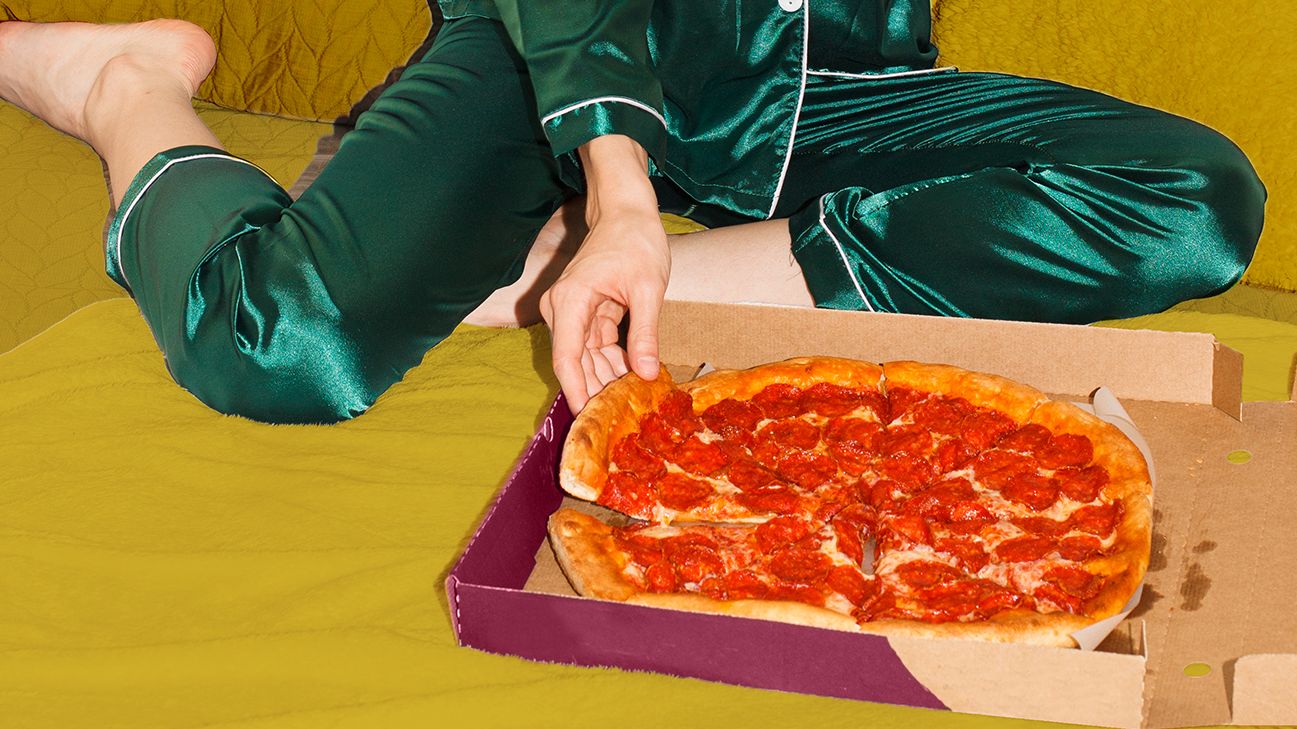There’s one thing health experts can all agree on: Sleep is really important.
Getting a good night’s sleep is tied to a slew of health benefits, like clarity of thoughts, quicker reflexes, and an improved mood. That means that not getting enough shut-eye can have some real consequences, like appetite changes, problems with daily tasks, and even a slumping immune system.
And believe it or not, what you eat before bed (and when you eat it) can have a serious impact on your sleep quality.

To help you catch more Zzz’s, we’ve compiled ideas for what you should (and shouldn’t) eat before putting on your PJs to ensure an excellent night of sleep.
Your first stop: Check in with your doctor for eating recommendations that work best for you.
Turkey
Turkey contains a pretty well-known ingredient associated with sleepiness: The amino acid tryptophan. Research shows that foods with tryptophan produce serotonin, which may help promote sleep (though maybe not in the way you’ve always heard).
Serotonin is one of the hormones that influences our circadian rhythm and sleep patterns. The solution? Eating foods like turkey, soy beans, and pumpkin seeds, which contain decent amounts of tryptophan.
Fatty fish
You might already know that fatty fish like salmon, tuna, trout, and mackerel have all kinds of health benefits. They may also improve sleep quality due to the dynamic duo of vitamin D and omega-3 fatty acids.
A 2014 study on men showed that eating fish seemed to have a positive impact on sleep efficiency and daily function after sleep. And bonus: another study showed that vitamin D and omega-3s can also increase serotonin.
Dairy products
Dairy milk, plain yogurt, and cottage cheese are all sources of tryptophan which, as we’ve seen, can increase serotonin and those previous sleeping hours.
Whole grains
Breads, crackers, pastas, or rice combined with a protein, like turkey, eggs, or low fat dairy, may be the perfect combination for a presleep snack. “The carbohydrate-containing foods help the tryptophan-rich foods get absorbed by the brain,” says Lindsey Joe, RD.
Whole oats are also a source of melatonin, a hormone that tells your body it’s time to sleep. It’s also found in wheat and barley.
Cherries
Cherries are another natural source of melatonin. One study found that a tart cherry juice concentrate was beneficial in managing disturbed sleep.
In a small 2019 study, adults who added tart cherry juice twice a day for 2 weeks slept longer and reported better sleep quality than those who didn’t drink the juice. It could be worth a shot if you’re looking for ways to amp up your sleep quality.
Magnesium
Foods high in magnesium, like dark leafy greens and avocado (did someone say late-night guac?) may be just what you need to ease into dreamland.
In one study of older adults with insomnia, magnesium had a positive effect on the quality of their sleep, like the length of time they slept and their ease in waking up (among other factors).
A late-night cup of joe
This one isn’t a shocker, but it bears repeating. “A good night’s sleep requires a specific formula for success, which can vary from person to person. There are, however, certain foods you should avoid to get maximum sleep benefits, such as caffeine-containing foods or beverages,” Joe says.
“Keep your caffeine intake to 200 to 300 milligrams per day and avoid it close to bedtime.” And don’t forget caffeine isn’t only lurking in your latte: It can also be found in chocolate, energy drinks, soft drinks, and tea.
Alcohol
Sure, a glass of red wine at night may make you feel sleepy, but drinking before bed could actually disturb sleep in healthy people. “Be sure to cut back on nightcaps, enjoying no more than one drink per day for women and two drinks per day for men,” Joe advises.
High fat foods
Sorry, but a late night rendezvous with Ben & Jerry’s could lead to restlessness in the wee hours. “High fat foods such as chips, fried foods, or ice cream should be avoided before bed,” advises Lisa Moskovitz, RD.
“Fat takes a long time to digest which will keep the body awake, or not well-rested, throughout the [digestion] process.”
A 2016 study suggested that high saturated fat led to lighter, less restorative sleep, though more research needs to be done to confirm this.
It’s best not to have really large meals near the end of the day so your body isn’t having to work hard to digest right when you’re trying to chill your body into resting.
Stick to smaller, nutrient-rich snacks. Bonus points if they have melatonin or tryptophan to lull you into relaxation. Here are some great options:
Late-night snack ideas for better sleep
- dairy milk and whole-grain cereal
- natural peanut butter on whole wheat bread
- whole oats cooked with milk with some dried tart cherries
- yogurt with half of a banana and a few chopped walnuts
- 2 cups of plain popcorn with a drizzle of olive oil
- a glob of guacamole and kale on a whole-grain tortilla
- smoked salmon and a bit of cream cheese on whole-grain crackers
Don’t sacrifice a solid night’s sleep for a late-night snack attack. But that doesn’t mean you have to go to bed hungry. A glass of milk and some crackers could be just the trick to punch the clock to sleepy time.
Overall, the science is still out on why and how these foods help or harm our sleep. But if you’re eating near your bedtime, remember these three pointers:
- Focus on foods that contain tryptophan (like turkey, eggs, and milk), which can help promote sleep.
- Avoid caffeine, alcohol, and high fat foods (damn you, Chunky Monkey!). They’ll hinder your ability to count those sheep.
- If you have to eat right before bed, eat a small meal or snack.

